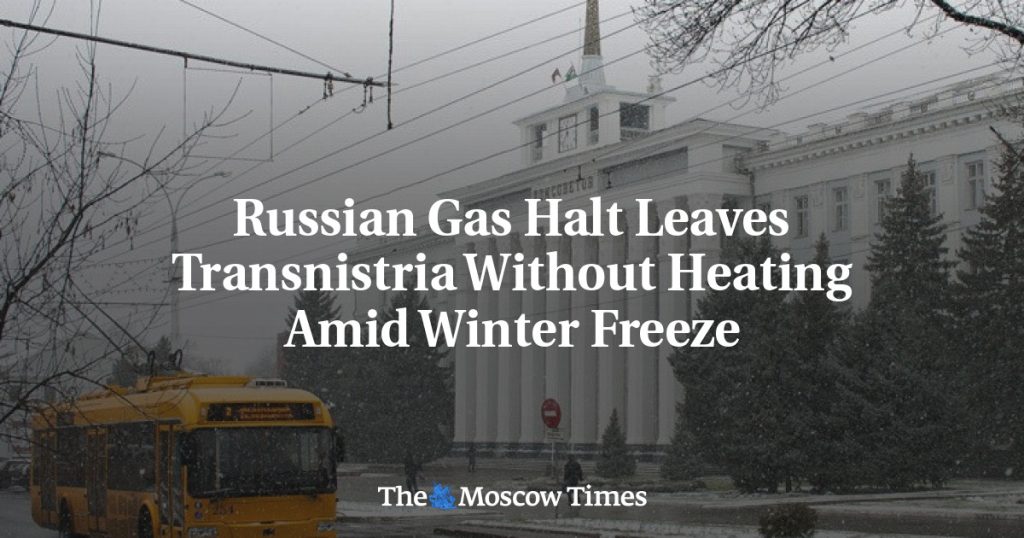Residents in the breakaway Moldovan region of Transnistria were left without centralized heating and hot water after Russian gas shipments via Ukraine were stopped, leading to the suspension of heating and hot water services by the local energy company Tirasteploenergo. This decision was made due to the temporary cessation of gas supplies to the company’s heat-generating facilities, with exceptions being made for healthcare facilities and residential care institutions. The cutoff was a result of Ukraine’s decision not to renew a five-year gas transit agreement with Russia starting on January 1, causing significant disruptions in the region.
The shutting down of heating services prompted Tirasteploenergo to provide recommendations to customers on how to stay warm during this period, including sealing gaps in windows and doors to retain heat and gathering family members in a single room while closing off unused spaces. With temperatures expected to reach minus 1 degree Celsius in Tiraspol, the capital city of Transnistria, residents were advised to use electric heaters and limit their energy consumption to prevent fires and electrical system overloads. The company also warned of the potential consequences of the energy shortage and the need for residents to take precautions to ensure their safety and well-being.
Transnistria had already declared a 30-day economic emergency in anticipation of the energy shortage, while Moldova implemented its own state of emergency in the energy sector as fears grew over the potential humanitarian impact of reduced gas supplies during the winter months. The situation highlighted the vulnerability of the region’s energy infrastructure and the dependence on external sources for heating and hot water services. The disruptions caused by the halt in gas supplies underscored the need for contingency plans and alternative energy sources to ensure the well-being of residents in the face of unexpected crises.
The company acknowledged the challenges of restarting the heating system, stating that it could take up to 14 days to restore heating and hot water services, requiring access to customers’ homes to complete the process. Despite the complexities involved, Tirasteploenergo reassured customers that it was making every effort to resolve the situation as quickly as possible. With the support of energy authorities and the cooperation of residents in implementing safety measures, the company aimed to mitigate the impact of the energy shortage and restore normalcy to the affected areas.
The unprecedented challenges faced by Transnistria and other regions due to disruptions in gas supplies highlighted the importance of independent journalism in providing accurate and unbiased reporting on such critical issues. The Moscow Times, facing challenges from the Russian authorities labeling it as an “undesirable” organization and a “foreign agent,” emphasized the importance of defending open, independent journalism in the face of repression. The call for support from readers aimed to ensure the continuation of vital news coverage and information dissemination in the midst of censorship and threats to press freedom.
As residents in Transnistria grappled with the consequences of the gas supply cutoff and the resulting energy crisis, the need for solidarity and support from the international community became apparent. The challenges faced by the region underscored the importance of cooperation and assistance in times of crisis, as well as the resilience and resourcefulness of individuals and communities in overcoming adversity. Through shared efforts and mutual support, affected areas could navigate the difficulties posed by the energy shortage and work towards sustainable solutions to prevent similar crises in the future.















